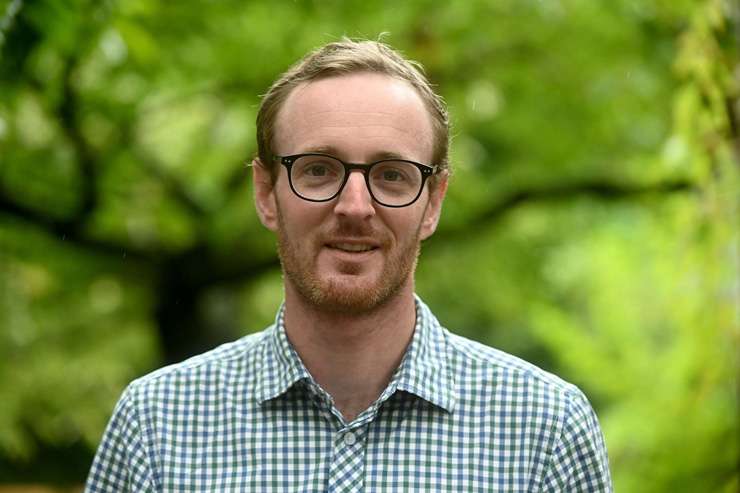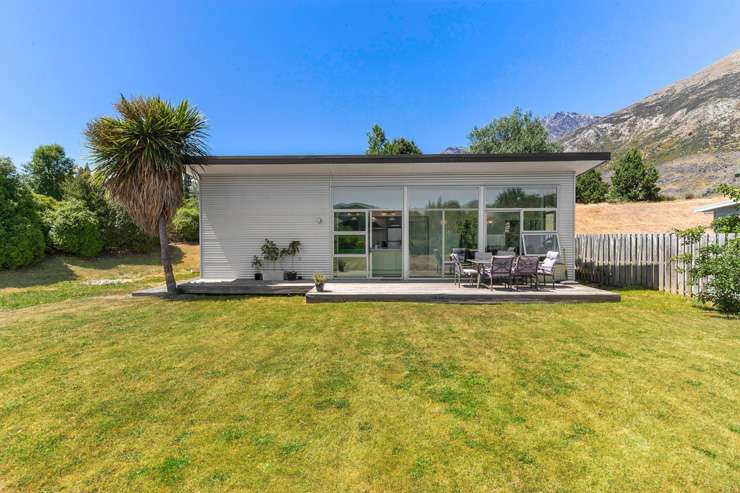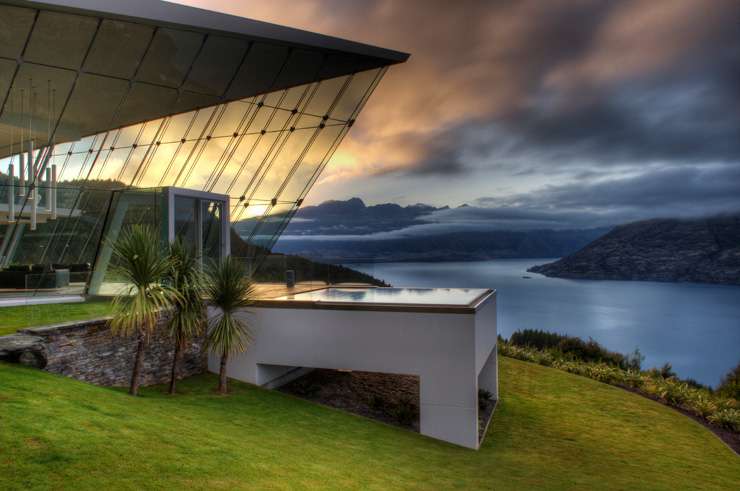“We have the most unaffordable property in New Zealand,” says Benje Patterson of Queenstown-Lakes. “It’s over $1.7 million for the average home.”
The independent economist says there is no pathway in for first-home buyers in the district, which is home to more than just the country’s super-wealthy.
“If you bought five years ago, you’re fine, but you’d have to pass a war zone to get in now. It’s so crazy.”
According to the latest OneRoof-Valocity house price figures, the average property value in Queenstown-Lakes has risen 54% in the last five years, handing Patterson’s “lucky” homeowners a gain of $660,000.
Start your property search
But the lift has made it harder to get a foot on the property ladder in the district, with OneRoof analysis showing the median purchase price by first-home buyers in Queenstown in the first half of 2022 reaching $1.135m.
Figures from OneRoof and other data insights firms also point to other problems facing buyers in Queenstown-Lakes: the housing market slowdown has so far had minimal effect on property values there, with the average property value dropping just 0.6% in the last three months, compared to drops of more than 4% in Auckland and Wellington.
Read more:
- Trophy home in gated Queenstown estate sells for 'well, well north' of $6m RV
- West Coast homeowner looking for a buyer with $199,000 and a heart of gold
- Property-buying spree: Wealthy Aussies jet into NZ with millions to spend
“It has been quite extraordinary how Queenstown has bucked that trend,” Patterson says. “Given that average household incomes are lower than Auckland, our houses cost hundreds of thousands of dollars more. It’s a real head scratcher.
“We normally follow [the country] with a lag. Just there are no signs of us following yet.”
One of the issues, Patterson says, is that Queenstown-Lakes buyers come in from other centres here and in Australia. Locals are competing with Auckland, which has 30 times the population, and, since borders reopened, buyers from Melbourne and Sydney, with 100 times the population, he says.
Even at current prices, which exceed Auckland’s average, Premium real estate agent Hamish Walker says open homes at affordable price points are seeing as many as 100 buyers through. One example was a house on Sylvan Street, in Lake Hayes, with a 2021 RV of $1.65m and sold in late January for an undisclosed sum.
“We would have 20 parties cashed up [currently] and looking to get into Shotover Country and Lakes Hayes Estate, which is an entry-level suburb in Queenstown, with most properties selling between $1.3 [and] $1.6m.”
Pressure is high and buyers are desperate. “You have parents trying to work three jobs to get into the housing market or pay the mortgage. [There is] financial pressure, emotional pressure, mental pressure, on the family unit. The kids get left at school and they forget to pick them up,” Walker says.
“We had one where a family had been trying to buy for six months. They had a budget of up to $900,000 [at the beginning]. Every 1% the interest rates go up, [a buyer’s] budget decreases from the bank by roughly 10%. Now the bank tells them they can only afford to borrow at $600,000.”

Economist Benje Patterson: “If you bought five years ago, you’re fine.” Photo / Supplied
The family couldn’t even find an affordable rental and had to remove their children from a Queenstown school and move out of town. “Every problem in Queenstown usually filters back to housing,” says Walker.
He says the tightest price point in Queenstown was the $1m-$2m mark. “I have desperate people who just want to find something to either buy or rent. Literally in tears. It’s absolutely heart-breaking. There just needs to be more land supply freed up. More affordable first-time housing.”
Salaries are rising in Queenstown, but not enough for first-home buyers to keep up with house prices as they continue to defy gravity, Patterson says. “You’re encountering very high prices even at the lower end of the market. Part of the reason for this is that we're a very small market and we're a real object of desire.
“The low interest rate environment created quite a boom and house prices, and quite a boom in construction. It’s not like we aren't building houses. We're building a heck of a lot of houses here.
“Since the borders reopened, demand has come back. Absolutely ferociously from the visitor perspective. Queenstown was this perpetual mirage for people across the ditch.”
An increase in visitors means an increase in demand for property.
Patterson points out that holiday homeowners in Queenstown are likely to sell if they need to shore up their balance sheets should they find themselves in financially challenging situations. “We’re not seeing that happening. Queenstown continues to thread the needle and buck the trend in isolation from everywhere out across Australasia.”

A two-bedroom home on a 1274sqm section on Widgeon Place, in Lake Hayes Estate, recently sold for just over $1m. Photo / Supplied

A trophy home commands an impressive view. How the wealthy live in Queenstown. The luxury "Jagged Edge" lodge costs $5000 a night to hire. Photo / Supplied
Bayleys Queenstown agent Stacy Coburn wouldn’t describe the district’s housing market as a “war zone”, and while he notes that the top end is holding on price, the lower tiers are feeling the effects of the slowdown. “The market has changed and it has got a lot tougher. That said, there are still real buyers who have an appetite to transact in this market, but if vendors are serious about selling currently, they have to realign their thinking with respect to values, especially in the mid-range residential sector. Top end seems to be holding on price,” he says.
“Our auctions last week saw six out 16 properties sell, with bidding and offers on over 50% of our inventory. There are four other properties currently under negotiation. The auction room was packed, signalling a lot of respective buyers and potential sellers using us as a barometer, to see what the market is doing. We also had over 400 people online watching our auctions.”
Among the properties to sell under the hammer at Bayleys’ auction on February 3 were a four-bedroom home on Shanahan Lane, in Arrowtown, which fetched $1.535m, and a two-bedroom home on a 1274sqm section on Widgeon Place, in Lake Hayes Estate, which was snapped up for $1.09m.
James Wilson, head of valuations at OneRoof’s data partner Valocity, believes the activity at the higher end of property prices could be skewing the overall average.
“You don't have a lot of stock coming to market, and what is coming to market available for purchases is very much the higher end of that price bracket,” he says. “People that want to get into the area still have to pay good prices to do so.”

Valocity head of valuations James Wilson says Queenstown “has always acted in a different way to the rest of New Zealand”. Photo / Supplied
Wilson adds that while prices are still relatively strong, and Queenstown-Lakes is acting in a different way to the rest of the country, sales volumes are low. “When you get areas like that with quite low sales volume and a few high sales a month, it can have the impact of propping up what might be happening or about to happen under the hood.
“No drivers we’re looking at would say that that market’s about to soften. It’s really a watch-this-space market. But it's Queenstown. It has always acted in a different way to the rest of New Zealand.”
One of the issues for buyers and renters has been homeowners turning long-term rentals into holiday lets on websites such as Booking.com, Bookabach and Airbnb. An attempt by the Queenstown-Lakes District Council to restrict Airbnb and other providers failed in early February. The council had been attempting to introduce a 28-day a year cap on short-term rentals in residential areas and 90 days in the town centre.
- See more houses for sale in Queenstown-Lakes

















































































